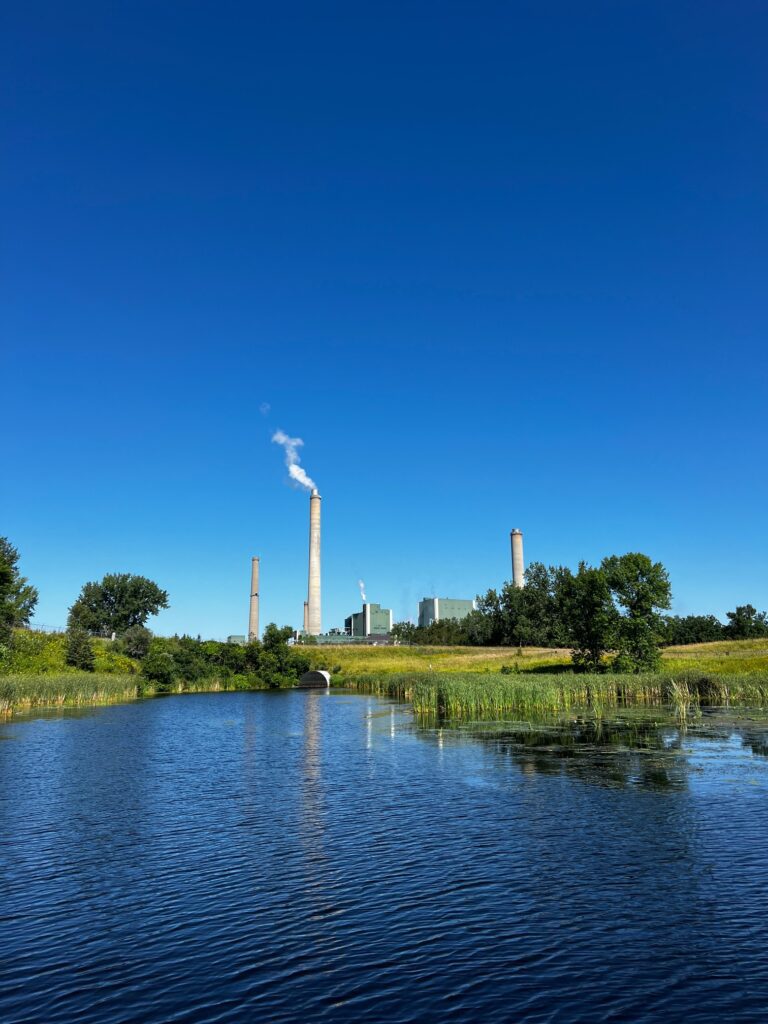State regulators warned Minnesota Power about leaks months before coal ash spill in July
Three months before millions of gallons of wastewater spilled from one of Minnesota’s largest coal power plants this summer, state regulators warned the utility to take action to prevent a significant spill from happening.
Minnesota Power initially said about a million gallons of coal ash-tainted water spilled at the Clay Boswell Energy Center in mid-July, but days later increased the estimate to five million gallons.
“How do you misjudge it by five [times]?” asked Aaron Bialke, who moved to his lakeside home in neighboring Grand Rapids five years ago. “That was a little bit concerning to me right away.”
Records obtained by 5 INVESTIGATES show it wasn’t the plant’s first spill.
Since Oct. 2, 2021, the power company reported 11 smaller incidents to the Minnesota Pollution Control Agency, including hundreds of gallons of coal ash, which is the hazardous byproduct from burning coal.

Minnesota Power’s clean-up efforts now include excavating contaminated soil and pumping out dirty water from nearby Blackwater Creek.
“As a highly complex operation, spills do occasionally happen,” said the utility’s Director of Environment Kurt Anderson. “But we are always focused on preventing – and when we can – eliminating the risk of those spills happening.”
Anderson confirmed to 5 INVESTIGATES that this latest leak, the company’s largest, went unnoticed for roughly five days in July.
In its April 2 letter to Minnesota Power, the MPCA noted the Duluth-based utility company failed six times to “immediately” report incidents to state regulators. The warning letter also told the company to take steps to prevent another spill.
“The items listed in that letter, we are working on those. But they would not have done anything to prevent this spill. This is unrelated to that letter,” Anderson said. “We’ll learn from this incident as well, and we’ll get better as a result.”
‘Heartbreak’ over wild rice impact
While the MPCA is still monitoring possible pollutants in the soil and water, the agency found sulfate levels near the site are above Minnesota’s wild rice standard. Blackwater Lake, which is home to wild rice beds, is a popular spot for Indigenous ricers.
“It does break my heart that all this rice is not going to be any good,” said Mike Robinson, a member of the Leech Lake Band of Ojibwe. “I couldn’t harvest it, I wouldn’t sell it, I wouldn’t use it, you know, it’s just – I don’t know. It’s not good.”
Robinson said the entire Leech Lake community is monitoring the situation because of the concerns over the long-term impact.
“It’s our way of life,” said Gary Charwood, also a member of the Leech Lake Band of Ojibwe. “It’s a long line of history that is part of who we are.”
Wild rice is not only a source of food but also a source of income. Charwood and Robinson charge about $20 per bag.
The utility said it’s working closely with the tribe.
“We share the concerns,” said Anderson. “Right now, we’re not seeing any acute impacts, but we know this is going to be a journey. I’m a ricer myself. This is not what we wanted to have happen.”
Anderson did not give a definitive response when 5 INVESTIGATES asked if he would eat wild rice from the area.
“We’d have to continue to evaluate that,” he said. “That’s why we do monitoring plans, right? We want to make sure we understand what the impacts are.”
Coal ash across the country
Coal ash, which can contain metals like arsenic and mercury, is a dangerous byproduct of coal-fired power plants. While the Boswell spill didn’t have a dramatic effect on drinking water near Cohasset, other cases across the country have resulted in criminal charges and lawsuits against power companies.
In 2008, the largest toxic coal ash spill in U.S. history buried homes and pushed others off their foundations in Tennessee. Months later, the U.S. Environmental Protection Agency (EPA) entered into an administrative agreement with the Tennessee Valley Authority to oversee cleanup that stretched seven years.
Minnesota Power describes the waste that spilled as watered-down coal ash. So far, tests haven’t found elevated levels of toxic metals like mercury or arsenic.
The company says it will continue to test and monitor the spill’s potential environmental impact.